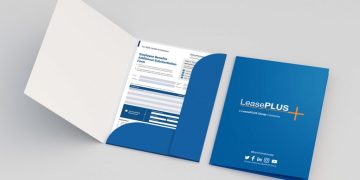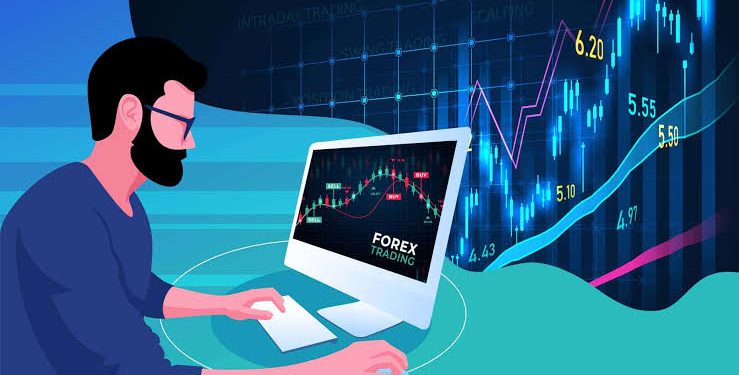Forex brokers are one of the primary component of your successful trading. They give you with the trading platforms and tools required to trade the markets and usually are the first ones to reach out to in times of trouble.
So how can you pick the right broker out of a sea of choices? What types of Forex brokers are available, and what features should you watch out for when picking a broker? In this guide, we address such questions.
Defining Forex Brokers?
Forex brokers enable individual traders, like you and me, to trade the financial markets from the comfort of our homes. Trading was once reserved for the big players, such as hedge funds, wealthy commercial and investment banks, and individual investors. You had to have millions to qualify as a high-net-worth individual and have access to global markets.
Thankfully, with the advance of information technology, trading is now accessible to everyone, regardless of experience, education, or income. While this implies that you may start trading in as few minutes, however, many traders lose money due to their lack of risk management expertise.
It’s easier than ever to get your feet wet in trading since internet access is now widely available, news is free and practically instant, and trading costs are as little as 1 pip on major pairs. According to certain Forex market sources, retail traders account for up to 5% of all trading volume in the Forex market. It’s easy to see how important and broad retail trading has grown given that this market has a daily turnover of over $6 trillion.
Nevertheless, before you can place your first trade, you must first open a brokerage account. There are hundreds of brokers, so choosing the right one is not easy, especially if you’re new to trading.
Your window into the world of currency trading is a Forex broker. Retail traders are unable to place a trade without a broker. Brokers link your purchase order with another sell order and vice versa, acting as a middleman for buy and sell orders. They usually charge a small fee through spreads for their services.
Conventional Types of Forex Brokers
Forex brokers come in a variety of different flavours. Although they carry out the same task—executing your order—not all brokers follow the same business model.
Dealing Desk and No Dealing Desk brokers make up the two primary categories of brokers.
Dealing desk brokers are sometimes known as market makers since they create the market for their clients. In other words, anytime you place a buy or sell order, a market maker will “create” the market for you by taking the opposite side of your trade. They sell when you buy. They buy from you when you sell.
This naturally generates a perceived conflict of interest, since your losses are your broker’s profits. And because brokers have access to all of their clients’ data, including stop-loss and take-profit levels, this has resulted in the infamous practise known as “stop hunting,” in which brokers create artificial spikes in the price to trigger their clients’ stop-loss orders. Luckily, those days are over, as most brokers are now strictly regulated.
No dealing desk brokers are brokers with the sole task of buying matching, and selling matching orders inside their client base or with the assistance of external liquidity providers. They do not take the opposite side of your trade and do not create a market for their clients. They only need to match opposite orders quickly and efficiently because the market is already there.
Electronic Communication Network (ECN) and STP (Straight-Through Processing) brokers are two subcategories of non-dealing desk brokers. ECN brokers provide a platform where various market participants may communicate with one another by submitting buy and sell orders and matching their orders using the broker’s platform.
STP brokers, on the other hand, play a more active role because they match orders within a deep pool of liquidity providers that includes other traders, banks, prime brokers, hedge funds, and so on. Lastly, some brokers combine the ECN and STP business models to create a hybrid of both types of brokers, known as the ECN+STP model.
What is forex trading and what does it entail? Find out more by trading this artcile. check the link
What to look for in a Broker
Choosing the right broker isn’t always simple. Traders demand quick execution times, stable trading platforms, timely customer assistance, and trading capital protection. It might take days, if not weeks, to review all of the available brokers’ offers. To make your choice a little easier, here is a fast checklist to run through on each broker on your shortlist.
Regulation
To date, the most important element of a broker is regulation. If your broker is unregulated, low trading costs and quick execution times mean little.
The Financial Conduct Authority (FCA) in the UK, the Commodities and Futures Trading Commission (CFTC) in the United States, the Australian Securities and Investments Commission (ASIC), and the Cyprus Securities and Exchange Commission (CySEC) are reputable bodies that regulate the brokerage industry.
Ensure that your broker has a licence from one of these authorities and that you are trading with a well-regulated firm.
Tradeable instruments
The availability of tradeable instruments is the next factor to consider when choosing a broker. Is the broker just available for currency trading? Indexes, stocks, commodities, cryptocurrency, and bonds are all examples. Which currency pairs are available? Is it possible to trade exotic currencies such as the Turkish lira or the Mexican peso?
You need to know what you need before looking at what your broker has to offer. Is your primary concentration on major pair pairs, or do you also want exposure to precious metals and stock indices?
The rest of the elements to look for in a broker:
- It’s Model
- The Trading Cost
- Withdrawal and Deposit Options
- Support
Final Words
We require an online Forex broker to trade the currency markets as retail traders. There are hundreds of brokers to select from, so it might be daunting to look through some of them and pick the finest one, especially if you’re a total newbie.
Ensure your broker of choice is regulated at the top, and you’re ready to go. A wide range of offered instruments, low trading costs, simple withdrawal and deposit methods, and professional customer service are more features to look for besides regulation.




















